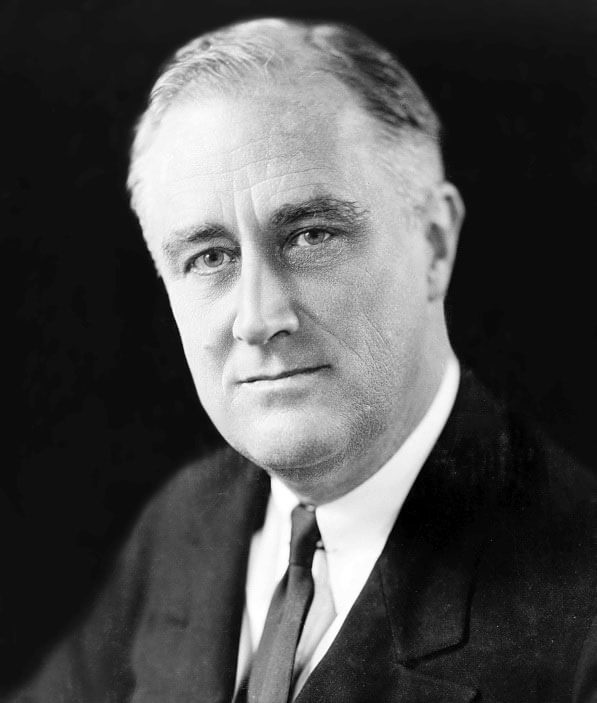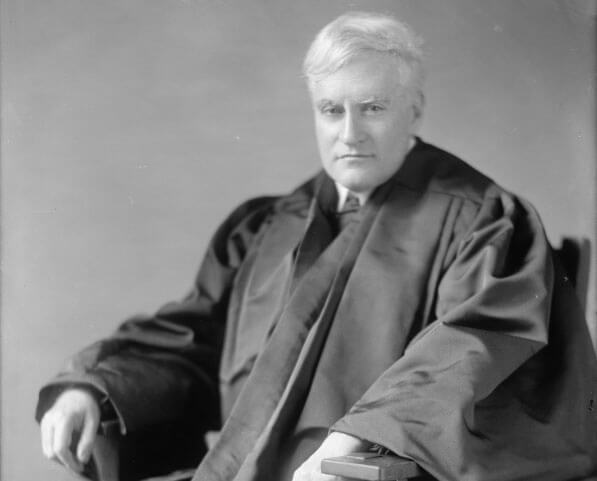I have seen numerous attorneys fail the bar exam and give up practicing law completely. In fact, over the course of my career I have seen this process unfold more times than I can remember.
Click Here to Find Law Student Jobs on LawCrossing
I have seen graduates of Yale, Harvard and Stanford Law School fail the bar exam multiple times. It is often the smartest people who fail the bar exam – simply because they do not take the test as seriously as it needs to be taken.

|
| Harrison Barnes |
In prestigious and high-ranked law schools, professors and others do not even talk about the bar exam. The idea is that the students are so intelligent and special that failing is not even something that has been or will be contemplated. This is a very dangerous mentality.
In contrast, many lower-ranked law schools start talking to their students about the importance of the bar exam from the first day they step in the door. I used to be a professor at a low-ranked law school, and the school would deliberately flunk out a significant percentage of its class each year because it wanted to make sure it had high bar exam passage rates.
I remember receiving telephone calls from students asking me to raise their grades by just a “plus or minus” to ensure they did not flunk out. This was very disappointing, but there was a certain logic to it: the students who flunked out were generally not the hardest working; some just “did not get it.”
Here are ten tips I strongly recommend law school graduates do in the event of failing the bar exam.1. Deal With The Shame and Move On
One of the most discouraging things for people about failing the bar exam is how they look in the eyes of other attorneys, peers, or co-workers after they fail the exam. This is an understandable issue and something that you need to come to terms with.

First, many incredibly talented people have failed the bar exam. The list of famous attorneys who have failed the exam reads like a “Who’s Who of American Jurisprudence.” Anyone can fail the bar exam, and it happens to a ton of people. If you are in a law firm, the odds are very good that many of the partners in your firm failed the bar at least once. Thus, you need to come to grips with the reality that you are not alone when it comes to having failed the exam.
Secondly, it is very difficult for graduates who are working at a law firm when their employers or co-workers discover that they failed the exam. Fortunately, very few law firms or other legal employers will fire someone as a result of failing the bar exam on the first attempt. If you fail the exam a second time, however, your odds of losing your job increase significantly. Thus, you will want to make sure you spend every spare second you have over the next several months studying and preparing for the exam to ensure you do not fail again.
The fact of the matter is that someone who does fail the bar exam is more likely to have their work more closely scrutinized in the future. You will be looked at more closely and people may not trust your work product as much. Your peers and others around you may also feel a bit superior to you and act in a condescending manner toward you.
The only way for you to deal with the situation of failing the exam is to work harder and prove your worth to your employer. You need to take your job even more seriously than your other peers, and you need to use your failure as something that sets you apart as a harder worker.
I once knew a guy who graduated from Harvard Law School, was working in a major American law firm and who failed the bar exam twice. Incredibly, the law firm allowed him to stay on even after failing the exam a second time. A few months after failing for a second time, he told the partners he was planning on taking a skiing vacation for two weeks with his girlfriend and missing work.
When he returned, he was fired.
If you fail the exam you need to demonstrate to your employer that you are the most motivated person in the office, and that every task you complete is done to the best of your ability and with 100% effort. It is important to rid yourself of the shadow cast on you as a result of failing the exam.
The good news is that after you pass the exam, people will eventually forget that you initially failed. Failing is often a good thing for attorneys because it teaches them an important lesson. They cannot take winning for granted, and they always need to apply maximum effort in everything they do.
2. Take the Bar Exam Again
Several years ago, I had a candidate who had graduated from Harvard Law School, and who was staying at a local hotel in Pasadena, California while taking the bar exam. I had placed her at Skadden and went to dinner with her the evening following the bar exam.
When I arrived, she was chatting with a guy she had met in the exam room, and he was talking about having taken the exam for the fifth time. He said that he probably failed because he had “met a girl” the night before and been up all night drinking and fooling around with the girl.
“That was not very smart,” I told him.

“Yes it was,” he told me. “I have an opportunity to take the bar exam every six months. The opportunity to sleep with an airline stewardess from Europe was a once-in-a-lifetime event for me!”
Although the topic of his discussion was rather sordid, he did raise an interesting point: if you fail the bar exam, you can always just take it again.
One woman, named Paulina Brandy, took the California Bar Exam 14 times before she passed.
Like Pauline Brandy and the guy in the hotel, just remember you can take the bar exam as many times as you want. With that being said, put your best foot forward, take the test very seriously, and do not give a minimal effort based on the knowledge you can “always take it again.” What is important is that even if you fail after having put in the time and the commitment, you can still get another crack at it and finally get the proverbial monkey off your back.
Do not, under any circumstances, give up. I meet people all the time who gave up taking the bar exam. When people who went to law school meet, they always ask if they practice and what law school they graduated from. People who went to law school and did not pass the bar exam have to explain it constantly – throughout their entire life. This is not something you want to have hanging over your head. You want to take the exam, pass and move on.
I know numerous people who gave up. Many of these people are superstars and extremely smart, and it is my belief that they have no excuse to surrender. If you went to law school, take the exam and pass it. You worked hard to get an undergraduate degree, studied hard for the LSAT, attended three years of law school, and took the accompanying final exams, all with the goal of becoming an attorney. All of this work should not go to waste, and you must take the exam again and pass. That is all there is to it.
3. Work Even Harder Next Time in Preparation for the Bar Exam
The bar exam is not an intelligence test like the LSAT or the SAT. It is primarily a test that measures the test-takers ability to memorize and regurgitate general principles of law and write using logic, reason, and the rules of law to support your arguments. Anyone who graduates from law school can pass the exam.
I’ve seen foreigners who barely spoke English come to the United States and pass the exam. I’ve seen people who had a hard time comprehending basic legal concepts pass the exam. I’ve seen people who could not write a paragraph without making numerous grammatical errors pass the test.
I want to be clear: the bar exam is based on more than intelligence.

All you need to do is work harder than you have ever worked before.
How hard do you need to work? You need to study and go to class for a full eight weeks. While it is acceptable to take an hour each day to exercise and possibly go out once a week for dinner while studying for the bar exam, this is about all of the leisure time you should be allowing yourself. Other than that, you want to be spending a full 16 hours of every single day 100% engaged in the material in preparation for this behemoth of an exam. I advise you to study in a quiet place without distractions. That means if you have children, you should hire someone to watch them. If you are working, you should take time off.
I’ve encountered several people who believe it is appropriate to work while studying for the bar exam. Employers may even encourage you to work while studying for the bar exam, which is unsurprising considering the fact they make money off of your labor. If you fail the bar exam, they can simply hire someone else to do the work. Future attorneys are incredibly expendable because there are so many of them. I’ve seen men and women prioritize their relationships with each other over studying for the bar exam. This is not advisable because the bar exam should be taken, passed, and put behind you. Any potential conflict can be avoided with your significant other if you communicate to them, early on, that you will not be spending much time together when you are studying for the bar exam. Remember, if you focus entirely on the test and dedicate nearly every waking hour to memorizing and mastering the material, you will be able to spend more time with your significant other after you pass. As a result, you can painlessly avoid going through the same “song and dance” of separation anxiety and friction in your relationship due to exam preparation.
Click Here to Find Summer Associate Jobs on LawCrossing
One of the craziest things I have seen occur is when the smartest students from the best law schools fail the exam. In my experience, these students tend to fail because they have adopted a superiority complex and are extremely overconfident in their abilities.
Just because you got a 3.9 studying philosophy at Brown, scored in the 95th percentile on the LSAT, and graduated from Columbia Law School does not mean you are going to pass the bar exam by divine right. The exam does not care about what you have done in the past. The bar is about memorization, effective regurgitation and knowing the material well enough to distinguish differences.
If anything, graduates from better law schools should work even harder to pass the bar exam than graduates from lower-ranked law schools. The worst law schools teach people how to take the bar starting on the first day of classes. Whereas, many of the professors at the better law schools are only concerned with philosophical and theoretical principles about the law and teach little to nothing to their students about passing the bar exam. I recommend that you commit to at least 14+ hours a day to studying and taking classes for the bar exam over a two-month period. If you are willing to make this commitment and be this dedicated, your chances of passing the exam skyrocket.
4. Do Not Skimp on The Classes You Take to Study for the Bar Exam
There are all sorts of cheap classes you can take to study for the bar exam. There are classes that cost half as much than the best classes. In all, you have several different courses of various price points that you can take in order to prepare for the bar exam.

Several years ago, Westlaw decided to get in the bar exam business. Its classes were a bit cheaper than its competitors and many people signed up due to the cheaper cost. However, their materials did not properly cover the exam, and numerous students failed because they sacrificed quality and went with the cheaper option. Although I do not begrudge people who cannot afford to pay for the best classes, consider it a worthwhile investment, and try not to base your choice of prep class purely on financial considerations. Many established brand-name bar exam classes are your best choice to prepare for the bar exam. It does not make sense to cut corners. The largest classes have the resources to put together more comprehensive materials, to research the latest trends in the exams, and to offer you feedback on your essays.
After a major six figure investment in law school, plus three years of your life, counting pennies when it comes to preparing for the bar exam is short-sighted and a major mistake.
5. Get a Tutor and/or Enroll in a Small Coached Class
Being tutored is something that is exceptionally helpful if you failed the exam. For one thing, a tutor can provide you with emotional support and motivation as well as hold you accountable. In addition, a tutor can zero in on your weaknesses and help you fix your mistakes.

For example, writing an essay on the bar exam is really a formulaic exercise – just like it is in law school. For reasons that are unclear to me, many people never learn to effectively write essays. When I was a law professor, I would see the performance of my students increase drastically when they learned to effectively answer essay questions.
The point is quite simple: If you fail the bar exam, you should take it even more seriously and do everything within your power to pass the next time. Getting a tutor can help tremendously in facilitating that process by addressing your weaknesses and correcting them through practice and repetition.
6. Adjust Your Mind and Get Your Head Straight
Many people who did not pass the bar exam suddenly lose their motivation and, subconsciously, may be sabotaging their ability to pass the exam. Some of the reasons people have these mental breakdowns or collapses are because:
- They do not feel they deserve success.
- They begin to convince themselves they do not want to spend the next 30 years working in a law firm.
- They are afraid of failing if they work as an attorney.
- Deep down, they believe they would enjoy doing something other than practicing law.
In my opinion, all this psychoanalysis does is give people who fail an excuse and stymies their progress. Although some people truly need therapy to overcome their depression, anxiety or feelings of inferiority, the reality is that they need to toughen up, get back in the saddle, and tackle their bar exam demons by being even more prepared and more determined to defeat them. In order to be successful, you need to have a clear mind that is free of distraction and is focused purely on the task at hand. Remember you are going up against many graduates who are going to be equally as motivated as you, and you cannot afford to let your mind destabilize your focus and sabotage your ability to study and prepare.

I remember seeing numerous people, when I took the bar exam, showing up for the test 30 minutes late, and mumbling about oversleeping or traffic. These are people who were sabotaging their own success and allowed their mind to interfere. Just focus on the exam and do not let any other negativity or distractions cloud the bigger picture that, once you pass the test, you can celebrate the achievement of having become a licensed attorney.
7. Concentrate on the Reward and Sense of Pride You Will Get After Passing the Bar Exam
Since I deal with attorneys on a daily basis, I can tell you that many have a profound sense of pride from having passed the bar exam and becoming attorneys. Many attorneys list on their resumes that they passed the bar on the first attempt (not something that is recommended or necessary).

If you become an attorney, people will call you an attorney for the rest of your life. Your children and others will be proud of you as well. When you die, your obituary will say you were an attorney. You will also be more employable (regardless of what you end up doing) once you are an attorney.
Eight weeks of studying is a small price to pay to be a member of the legal profession.
8. Change Your Approach to Studying for the Exam
If you failed the bar exam, you may have spent too much time studying for the multiple choice section, or too much time on the essay sections. You should examine your results, focusing on your mistakes and deciding the best course of action to correct them.

If you have a tutor and understand what you need to do differently, you will be in a much better position the next time you sit for the exam.
Another common mistake that people make when studying is not concentrating to the maximum extent possible. You cannot study on “autopilot” and should be focused on fixing your biggest weaknesses. For example, if you hate property law and find it to be confusing– but you enjoy Constitutional Law—you are going to get much more “bang for the buck” if you fix your weakness in property law and study the concepts you struggle with incessantly. In order to pass the exam on the next attempt, you can ill afford to make the same mistakes because it is likely that those mistakes are the reason you don’t sign your letters with “attorney at law” after your name. You must be flexible, willing to change your approach, and do whatever is necessary to prepare yourself for the exam.
9. Get Special Accommodations or Prescription Drugs If You Need Them
Some people taking the bar exam are dyslexic, have ADD, or severe anxiety disorders.
Various states are obligated under the law to provide you with special accommodations when taking the bar exam. This may mean they give you more time or a special room. If you have any sort of disability (or think you might), you may be entitled to help.

Some people have such massive anxiety when taking the exam that they cannot concentrate and seize up completely. There are beta blockers and other drugs that a doctor or psychiatrist can prescribe.
Many people also have issues concentrating. There are drugs doctors can prescribe for that as well.
I am certainly not advocating drug use, but if you are having severe concentration problems or anxiety issues, you probably should be talking to a doctor who may be able to prescribe something to help you.
10. Make Sure You Concentrate on Being Practical and Not a Scholar
My wife did so well on the bar exam that, after taking it, they asked her to be a grader. My wife is very smart and very practical. If I tried to speak with her about economic policy, Plato, or some other theoretical concept she would have no idea what I am talking about. The bar exam does not favor people who impress with complicated analysis. The bar exam wants “just the facts man.”

Being smart on the bar exam is not about showing how much you know about topics tangentially related to the law. The exam only measures your ability to use a certain amount of law everyone is supposed to know and apply this to a bunch of facts. This is all you need to know how to do. A bar exam grader getting $10 to read your essay just wants to see you apply the law to the facts in a situation. If you do more than that, you will confuse them and receive a low grade, which can jeopardize your goal of passing the exam.
Do not get caught up in providing the bar examiners with information that is irrelevant to the law you are supposed to know. All you need to do is understand the law and apply it to the facts that are given to you. Do not complicate things, because it will make what is already an incredibly difficult job even more difficult.
Conclusion
I have seen numerous attorneys fail the bar exam. It is always a difficult process and many people struggle with the aftermath. Remember to maintain your composure and take the failed exam as a sign that you were simply not prepared and that you need to study even harder next time. Learn from your mistakes and continue to press on until the job is done. On a lighter note, here is a non-exhaustive list of seven famous people who have failed the bar exam. Many of the names on this list might surprise you:
1. Jerry Brown - The current California Governor and former Attorney General of California failed the bar exam his first time.

2. Hillary Clinton - The current Secretary of State, former First Lady, and graduate of Yale Law School failed the D.C. bar exam in the 1970’s.

3. John F. Kennedy Jr. - The son of President John F. Kennedy failed the New York bar two times before he passed on his third attempt.

4. Pete Wilson - The former Governor of California failed the California bar exam three times before passing it on his fourth attempt.

5. Michelle Obama - The current First Lady failed the Illinois bar exam on her first attempt.

6. Franklin Delano Roosevelt - One of the most famous Presidents who guided the United States through the Great Depression and World War II, failed the bar exam.

7. Benjamin Cardozo - Although known in the legal community as one of the most famous and impactful Supreme Court Justices in American jurisprudence, many forget that Justice Cardozo failed the bar exam.

Read More About the Bar Exam!
- Conquering the Bar Exam: Knowing Thy Enemy
- The Different Policies of Various State Bar Associations Regarding the Transfer of MBE Scores from One Jurisdiction to Another
- Prep Course for Taking the Bar Exam and PMBR (Professional Multistate Bar Review)
- Some Last-Minute Bar Exam Tips
- I Want to Relocate to Another Market. Is It a Problem If I Am Not a Member of the Bar in That State?
- Prepare for the Bar Exam
- How to Prepare for the Bar Exam: Some Helpful Tips for Law Students
- The Final Preparations for Bar Exam
- In General, What Can You Do to Prepare Yourself for the Bar Exam?
- The History of Bar Exams and LSAT
- Techniques for Passing the Bar Exam
- The Multistate Bar Examination (MBE) for Law Graduates
- Taking the Bar Exam: How to Prepare in Advance for the Big Test!
- Stopping the Cycle of Failure in Bar Exams
- How to Write a Bar Exam Essay
- Self-Discipline Tips for the Bar Exams
- Reasons Not to Combine Two Bar Exams
- The Anxiety that precedes the Bar Exam
- How to Study for the Bar Exam
- How to Prepare You for the Bar Exam and Teaching You What You Need to Know to Practice Law
- Tackling Anxiety During Bar Exams
- Prepare for the Bar Exam with the Right Attitude
- The Bar Exam
- Why Lawyers Dread the Bar Exam
- Studying for the Bar Exam
- Overcoming Perceived and Real Bias in the Bar Exam
- Bar Exam Anxiety Spreads
- New Study Shows Law Students Who Fail the Bar Fall Behind
- Breaking the Bar Exam Barrier
- Explaining Bar Failures During a Legal Job Interview
- How to Prepare for the Bar Exam
- The Bar Exam and Beyond
- "Guidelines on Reciprocity or "Admission on Motion" among the States as per American Bar Association"
- Pass the Bar in One State, Work in Another.
- Taking the Bar in Multiple States
- Don't Panic! Ten Tips for Surviving the Bar Exam
- New York's Exam: The Biggest Baddest Bar
- If You Have Failed the Bar Exam It Is Not the End of the World
- Barriers Fall for Out-of-State Attorneys
Click Here to View the 2015 LawCrossing Salary Survey of Lawyer Salaries in the Best Law Firms
Comment
You are wrong about Cardozo. It is true that he dropped out of Columbia's law school without graduating, but it is not true that he flunked the New York bar exam. I challenge you to prove otherwise with something more credible than other similarly mistaken blog posts.
- Stockmen
CLICK HERE TO SEARCH JOBS IN OTHER STATES!
Please see the following articles for more information about law school, the bar exam and succeeding in your first year of practice:
- Acing Law School Exams: Grade-A Advice
- What's Next after Finishing Law School
- First Year of Law School Survival Tips
- Does Law School Rank Determine Success?
- The Three Major Legal Fraternities and Why You May Want to Join One
- Late Bloomers: Going to Law School Later in Life
- Coping with Law School Dismissal
- Graduated From a Tier 3 Law School: There’s much you can do with your degree
- The Real World: Life after Law School
- Why You Should Think Twice About Remaining in Law (or Going to Law School)
- Should You Marry a Lawyer? A Couple's Guide to Balancing Work, Love and Amibition
- After Law School, B-School: The Rise of M.B.A.'s Among Attorneys
- Law Schools at Historically Black Colleges and Universities
- Non-ABA-Accredited Schools May Offer Good Alternative
- Top Law Schools Analyzed and Ranked By America’s Top Legal Recruiter Harrison Barnes
- The Five Stages of Every Legal Career
- "Guidelines on Reciprocity or "Admission on Motion" among the States as per American Bar Association"
- Pass the Bar in One State, Work in Another
- Taking the Bar in Multiple States
- Don't Panic! Ten Tips for Surviving the Bar Exam
- New York's Exam: The Biggest Baddest Bar
- If You Have Failed the Bar Exam It Is Not the End of the World
- Barriers Fall for Out-of-State Attorneys
- The 10-Step, ''No-Fail'' Guide to Distinguishing Yourself as a First-Year Associate
- The Art of Drafting a Proper Legal Memo
- 5 Tips for First Year Law Firm Associates
- Top 39 Tips for New Litigation Associates and Trial Lawyers: How to Be a Good Litigation Attorney
- 2015 1st Year Salaries and Bonuses of the Top Law Firms






